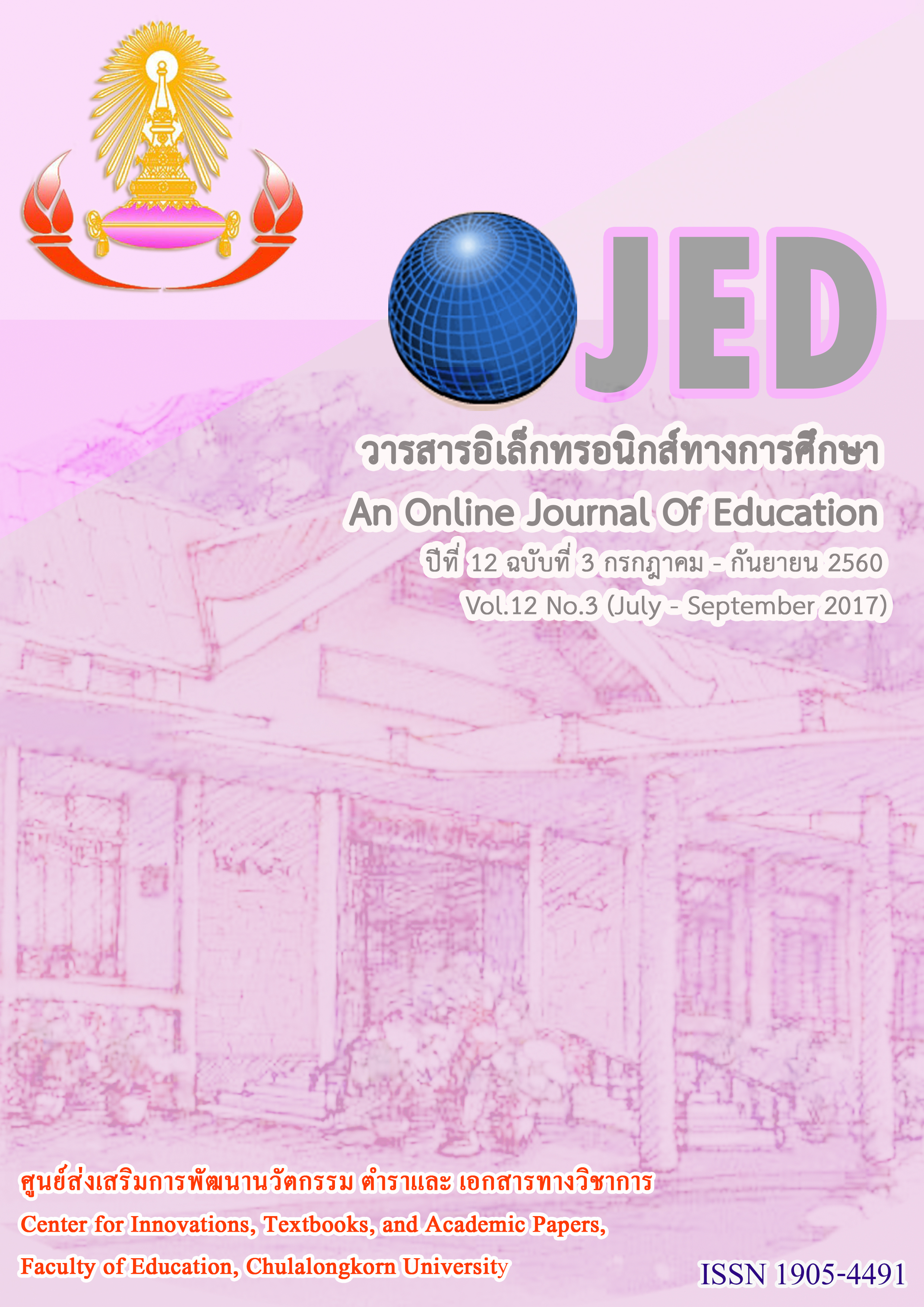ผลของการจัดกิจกรรมการเรียนรู้คณิตศาสตร์ตามแนว Model-Eliciting Activities ที่มีต่อความสามารถในการถ่ายโยงการเรียนรู้ และความสามารถในการแก้ปัญหาทางคณิตศาสตร์ ของนักเรียนมัธยมศึกษาปีที่ 2
Keywords:
CONCEPT OF MODEL-ELICITING ACTIVITIES, LEARNING TRANSFER ABILITY, MATHEMATICAL PROBLEM SOLVING ABILITIYAbstract
The purposes of this research were: 1) to compare learning transfer ability and mathematical problem solving ability of students between, before, and after being taught by organizing mathematics learning activities using concept of Model-Eliciting Activities, 2) to compare learning transfer ability and mathematical problem solving ability of students between group being taught by organizing mathematics learning activities using concept of Model-Eliciting Activities and group being taught by conventional approach, and 3) to study the learning transfer ability and mathematical problem solving ability of students after being taught by organizing mathematics learning activities using concept of Model-Eliciting Activities. The samples were 61 eighth grade students of Ritthinarongron School in second semester of the 2015 academic year. This instruments using in experiment were treatment plans and conventional plans. The instruments for data collection were pretest and posttest for learning transfer ability, and pretest and posttest for mathematical problem solving ability. The data were analyzed by using arithmetic mean, standard deviation, t-test, and F-test.
The results of the study revealed that: 1) learning transfer ability and mathematical problem solving ability of students after being taught by organizing mathematics learning activities using concept of Model-Eliciting Activities were higher than those before Instruction at 0.05 level of significance, 2) learning transfer ability and mathematical problem solving ability of students being taught by organizing mathematics learning activities using concept of Model-Eliciting Activities were higher than those of students being taught by conventional approach at 0.05 level of significance, and 3) the learning transfer ability and mathematical problem solving ability of students after being taught by organizing mathematics learning activities using concept of Model-Eliciting Activities were developed in positive direction.




